
Tafuna: The Heartbeat of American Samoa
Nestled in the heart of the Pacific, Tafuna in American Samoa is a hidden gem that offers a blend of rich cultural heritage and natural beauty. As the largest village in American Samoa, Tafuna is a vibrant hub that boasts a unique mix of traditional Samoan culture and modern amenities. Visitors can expect a warm welcome from the friendly locals, who are proud to share their customs and traditions with travelers. Explore the lush landscapes that surround Tafuna, from its verdant hills to its pristine beaches. The village is a gateway to the island’s stunning natural scenery, including the nearby National Park of American Samoa, where you can hike through tropical rainforests and marvel at breathtaking ocean views. For those interested in history, Tafuna is home to several significant archaeological sites that offer a glimpse into the ancient Samoan way of life. Tafuna is also known for its vibrant markets and delicious local cuisine. Spend a day at the marketplace, where you can sample fresh seafood, tropical fruits, and traditional Samoan dishes. The village's lively atmosphere is further enhanced by its colorful festivals, where you can experience traditional music, dance, and crafts. Whether you are looking to immerse yourself in the local culture or simply relax in a tropical paradise, Tafuna has something for every traveler.
Local tips in Tafuna
- Visit the Tafuna market early in the morning for the freshest produce and seafood.
- Bring comfortable hiking shoes to explore the scenic trails in the National Park of American Samoa.
- Learn basic Samoan phrases to connect better with the locals.
- Check the local festival calendar to experience cultural events and traditional performances.
- Respect local customs and dress modestly, especially when visiting villages and cultural sites.
Tafuna: The Heartbeat of American Samoa
Nestled in the heart of the Pacific, Tafuna in American Samoa is a hidden gem that offers a blend of rich cultural heritage and natural beauty. As the largest village in American Samoa, Tafuna is a vibrant hub that boasts a unique mix of traditional Samoan culture and modern amenities. Visitors can expect a warm welcome from the friendly locals, who are proud to share their customs and traditions with travelers. Explore the lush landscapes that surround Tafuna, from its verdant hills to its pristine beaches. The village is a gateway to the island’s stunning natural scenery, including the nearby National Park of American Samoa, where you can hike through tropical rainforests and marvel at breathtaking ocean views. For those interested in history, Tafuna is home to several significant archaeological sites that offer a glimpse into the ancient Samoan way of life. Tafuna is also known for its vibrant markets and delicious local cuisine. Spend a day at the marketplace, where you can sample fresh seafood, tropical fruits, and traditional Samoan dishes. The village's lively atmosphere is further enhanced by its colorful festivals, where you can experience traditional music, dance, and crafts. Whether you are looking to immerse yourself in the local culture or simply relax in a tropical paradise, Tafuna has something for every traveler.
When is the best time to go to Tafuna?
Iconic landmarks you can’t miss
Samoa Cultural Village
Immerse yourself in Samoan culture at the Samoa Cultural Village in Apia. Experience traditional crafts, cooking, and performances.
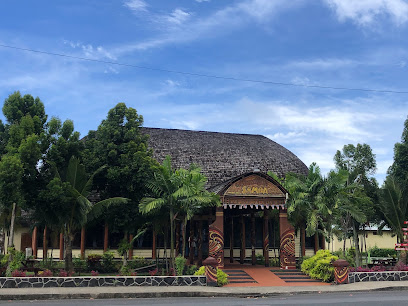
KS Mart
Your go-to grocery store in Tafuna, offering a wide selection of local and international products for all your needs.
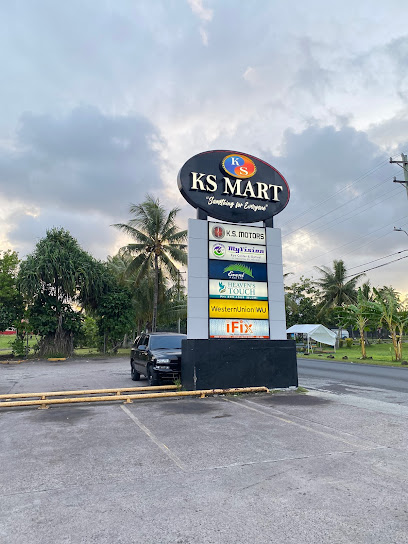
Laufou Shopping Center
Discover a diverse range of shopping, dining, and essential services at Laufou Shopping Center, the heart of retail in Nu'uuli, American Samoa.
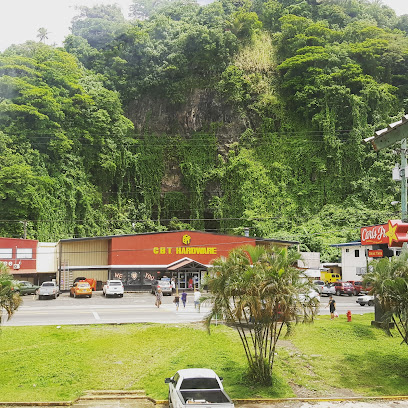
National Park of American Samoa
Discover rainforests, coral reefs, and ancient Samoan culture in the heart of the South Pacific at America's most remote national park.
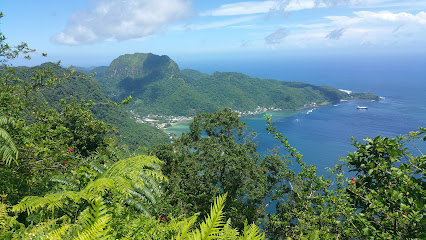
Tisa's Barefoot Bar
Experience authentic Samoan culture and stunning ocean views at Tisa's Barefoot Bar, a must-visit destination in Alega, American Samoa.
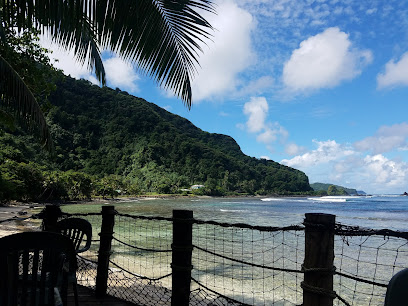
National Park of American Samoa Visitor Center
Discover the natural wonders and rich culture of American Samoa at the National Park's visitor center in Pago Pago.
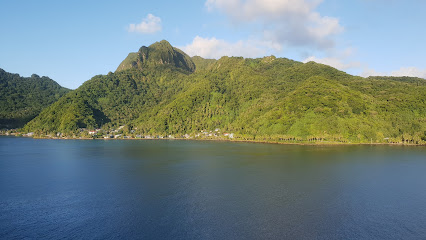
Lalomanu Beach Fales
Discover Lalomanu Beach: Pristine sands, turquoise waters, and authentic Samoan culture await on Upolu's stunning southeast coast.
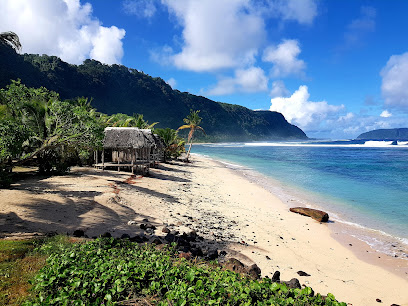
Milovales Burgers and Fish & Chips
Savor island flavors at Milovales Burgers and Fish & Chips in Nu'uuli. Fresh, generous, and always satisfying!
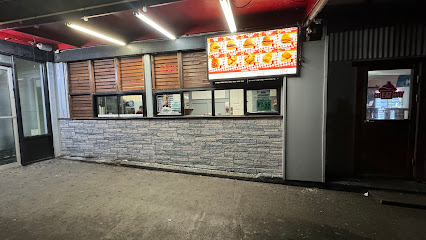
Veterans Memorial Stadium
Experience the vibrant sports scene and cultural events at Veterans Memorial Stadium, the heart of Tafuna, American Samoa.
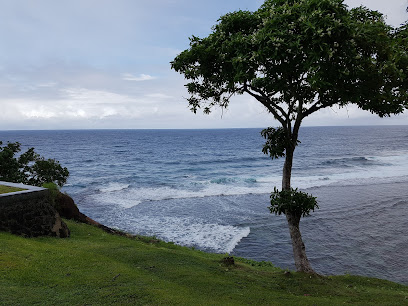
Pago Airport Inn
Conveniently located near the airport in Tafuna, offering comfortable accommodations and warm Samoan hospitality for a relaxing stay.
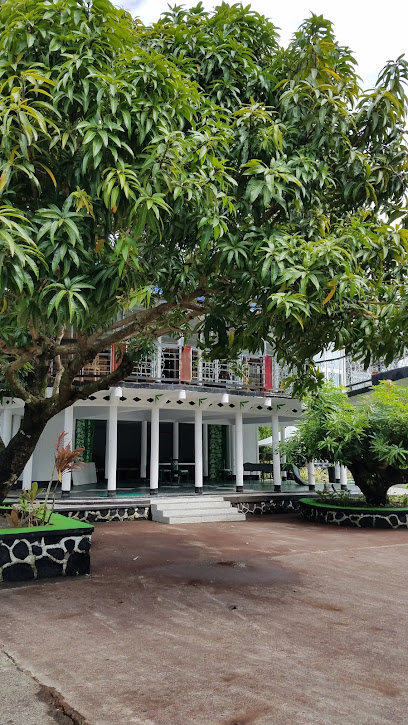
American Samoa Visitors Bureau (ASVB)
Explore the heart of the South Pacific: Get expert travel tips and discover the beauty of American Samoa at the Visitors Bureau in Pago Pago.
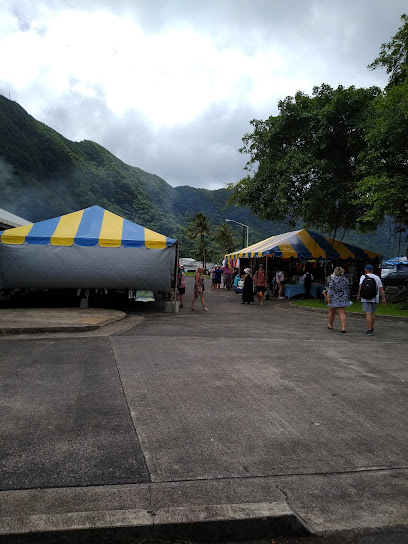
Fagatogo Square
A modern shopping and business center in the heart of Pago Pago, offering a mix of retail, dining, and government services.
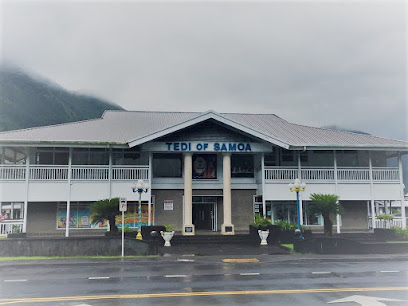
Jean P Haydon Museum
Discover American Samoa's rich heritage at the Jean P. Haydon Museum in Fagatogo, showcasing traditional artifacts, historical photos, and Apollo mission relics.
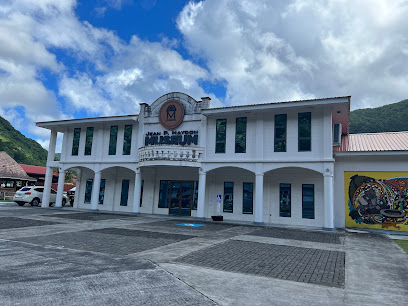
Two Dollar Beach
Discover Two Dollar Beach in Avaio: pristine sands, clear waters, and a tranquil Samoan escape await. Perfect for families and snorkelers!
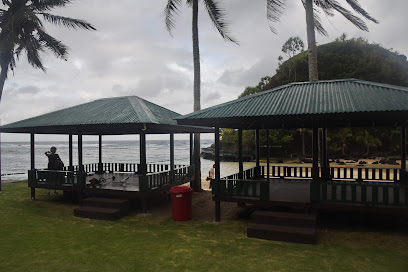
OFFDAROCK TATTOOS AMERICAN SAMOA
Experience Samoan culture through unique Polynesian tattoos at OFFDAROCK TATTOOS in Pago Pago, American Samoa.

Unmissable attractions to see
Cape Tapaga
Discover Cape Tapaga in Vailoa, Samoa: Breathtaking coastal views, tranquil beaches, and vibrant coral reefs await your adventure.
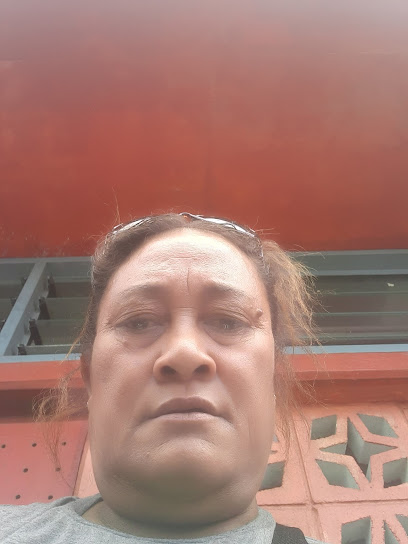
Ti'avea Beach
Discover the serene beauty of Ti'avea Beach in Samoa: soft sands, clear waters, and tranquil vibes await on this idyllic tropical getaway.

Turtle Island Samoa
Discover Turtle Island, Samoa: Swim with turtles, explore pristine beaches, and immerse yourself in the tranquility of a secluded tropical paradise.

Essential places to dine
McDonald's
Savor your favorite fast food classics at McDonald's in Tafuna - perfect for tourists on the go!
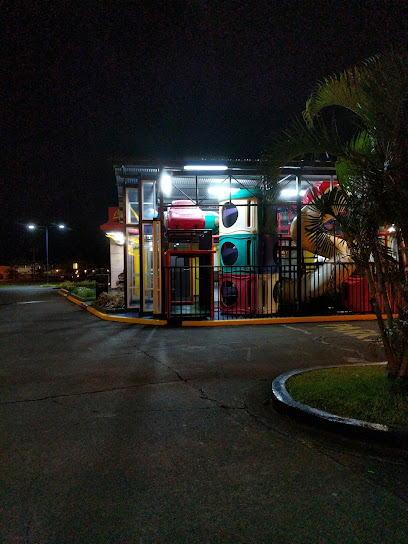
Tisa's Barefoot Bar
Experience tropical dining at Tisa's Barefoot Bar in Alega - savor fresh local cuisine with stunning ocean views.
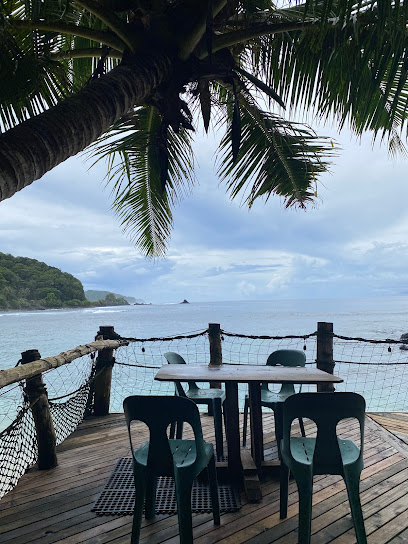
DDW Restaurant
Experience exquisite local flavors at DDW Restaurant, where delicious cuisine meets breathtaking beach views in Utulei.
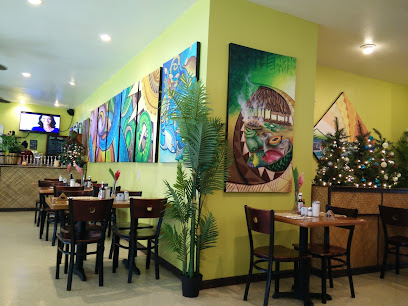
The Koko Bean Cafe
Discover authentic Samoan cuisine blended with global flavors at The Koko Bean Cafe in Nu'uuli.
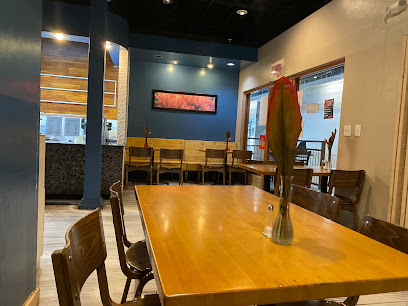
Carl's Jr.
Discover fast food with a tropical twist at Carl's Jr., your go-to spot for hearty meals in beautiful Pago Pago.
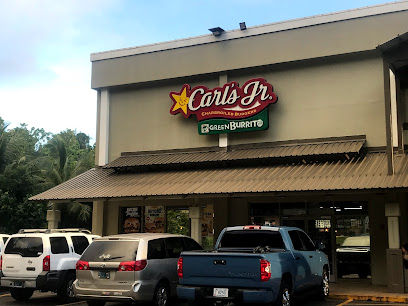
Paradise Pizza
Discover the taste of authentic pizza at Paradise Pizza in Pago Pago – where every slice is a slice of heaven.
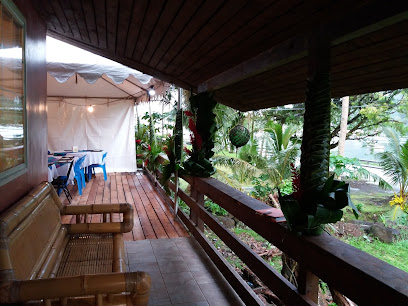
Cecilias Restaurant & Bar
Discover authentic flavors at Cecilia's Restaurant & Bar in Pago Pago, where local cuisine meets international delights in a vibrant atmosphere.
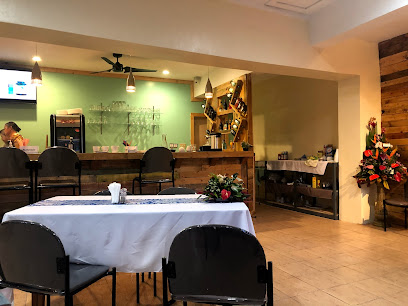
Milovales Burgers and Fish & Chips
Experience mouthwatering burgers and crispy fish & chips at Milovales in Nu'uuli - a fast food gem perfect for tourists seeking local flavors.
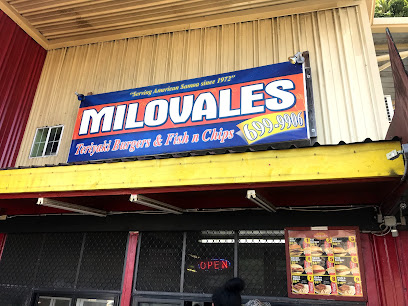
Tropical Chicken and Pizza
Experience tropical flavors at Tropical Chicken and Pizza in Pago Pago – where delicious pizza meets local culinary traditions.
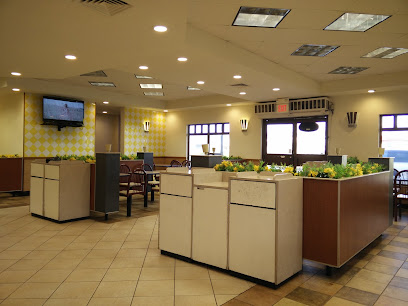
Oasis
Experience authentic Korean cuisine at Oasis in Tafuna – where vibrant flavors meet warm hospitality.
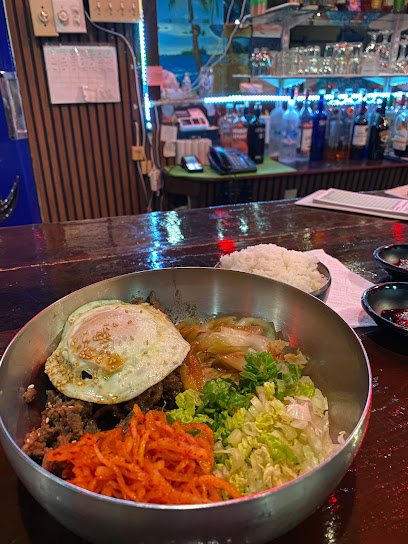
Flying Fox Gastropub
Discover the vibrant flavors of Samoa at Flying Fox Gastropub - where local cuisine meets modern dining in an inviting atmosphere.
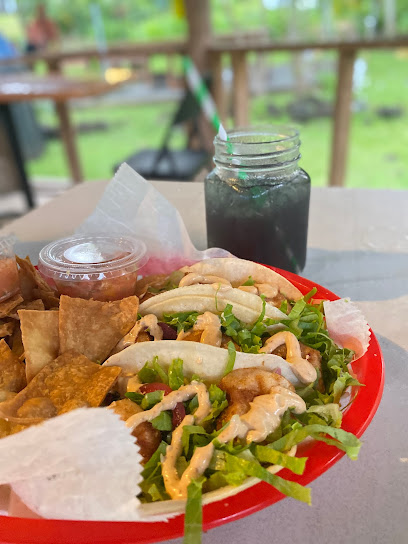
T J D - Pho Vietnamese Restaurant
Experience the essence of Vietnam with delicious pho and authentic dishes at T J D - Pho Vietnamese Restaurant in Malaeimi.
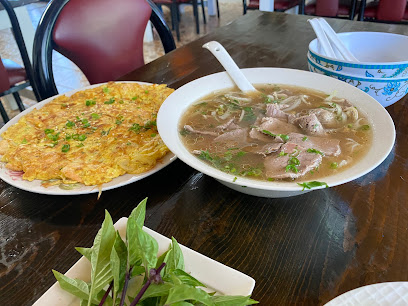
Dickies Diner
Experience authentic fast food with a local twist at Dickies Diner in Tafuna - where every bite tells a story.
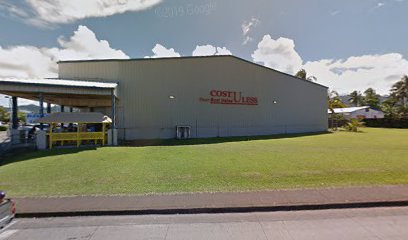
Manuia Restaurant
Experience authentic Korean flavors at Manuia Restaurant in Tafuna—where every meal tells a story.
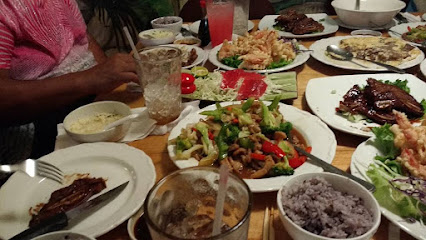
Nina’s Restaurant
Experience authentic Samoan flavors at Nina’s Restaurant in Tafuna - where every dish tells a story.
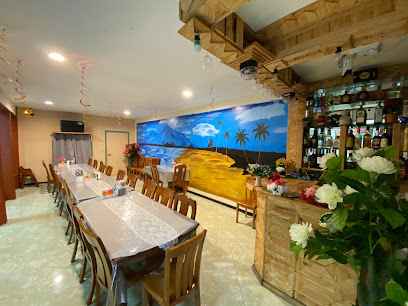
Markets, malls and hidden boutiques
KS Mart
Discover local flavors and fresh produce at KS Mart in Tafuna, your go-to grocery store for an authentic American Samoa experience.
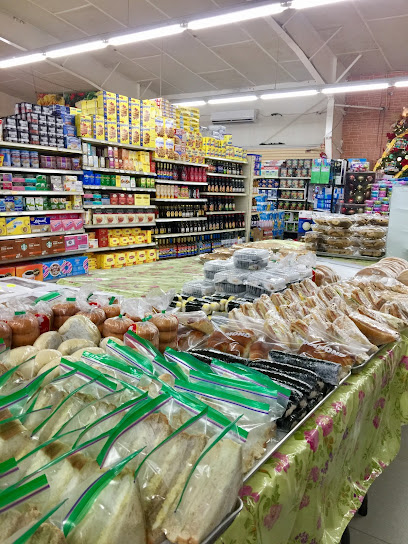
Laufou Shopping Center
Explore Laufou Shopping Center in Nu'uuli for a unique shopping experience that blends local culture with modern retail offerings.
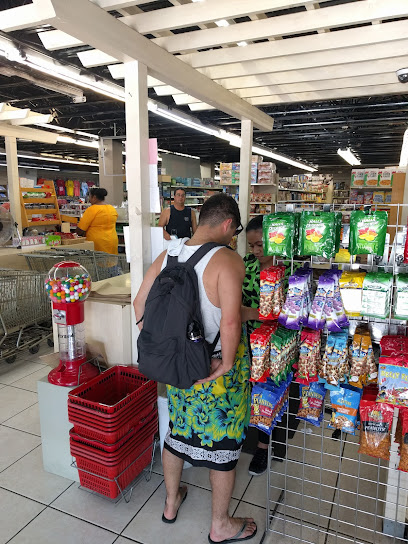
Cost.U.Less
Explore Cost.U.Less in Pago Pago for a unique shopping experience with local products and essentials, perfect for tourists and residents alike.
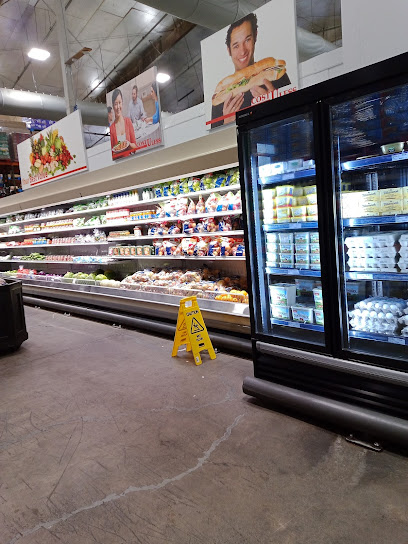
TSM Mart
Explore the flavors of American Samoa at TSM Mart, a vibrant grocery store in Tafuna offering fresh produce and local delicacies.
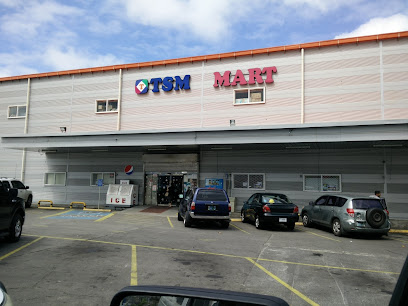
US AAFES American Samoa Post Exchange
Explore the vibrant US AAFES American Samoa Post Exchange for unique shopping experiences, local culture, and great deals in Tafuna.
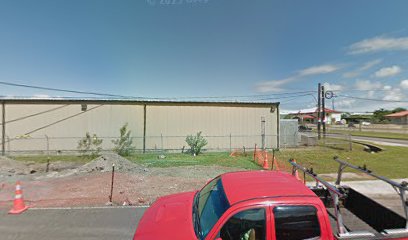
Manu'a Store
Explore Manu'a Store for unique home goods and a taste of Samoan culture in the heart of Nu'uuli.
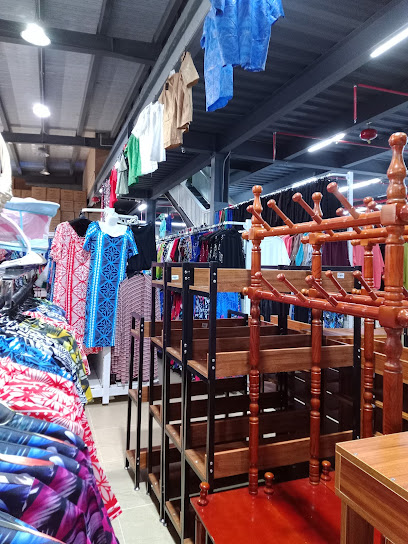
Forsgren
Explore Forsgren, the ultimate supermarket in Nu'uuli, offering a vast selection of local and international products for all your shopping needs.
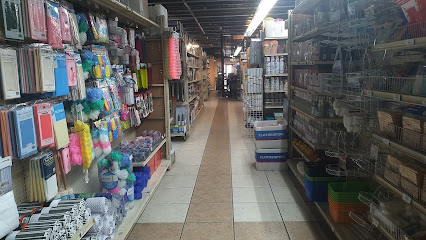
KT Mart
Discover trendy clothing and accessories at KT Mart in Nu'uuli, a must-visit shop for tourists seeking local fashion.
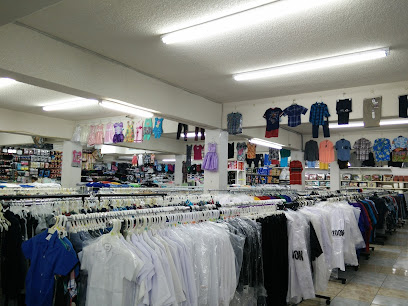
Shin's Store
Discover the flavors of Pava'ia'i at Shin's Store, your local grocery destination for fresh produce and unique regional products.
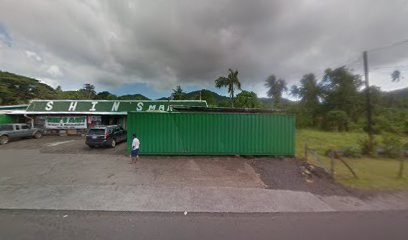
Tropik Traders
Discover unique island fashion and handcrafted treasures at Tropik Traders in Nu'uuli, the perfect shopping destination for tourists.
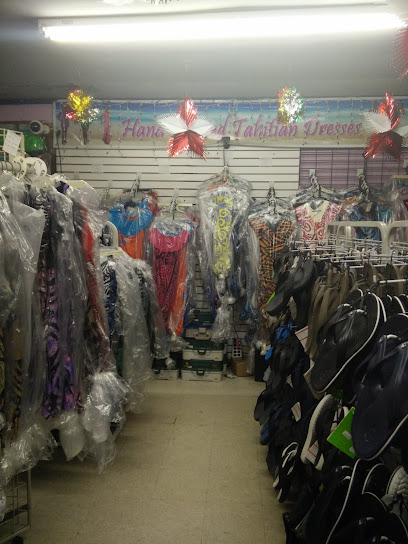
Shoe Tree
Experience the whimsical Shoe Tree in Nu'uuli - a must-see landmark showcasing local culture and creativity through an eclectic shoe display.
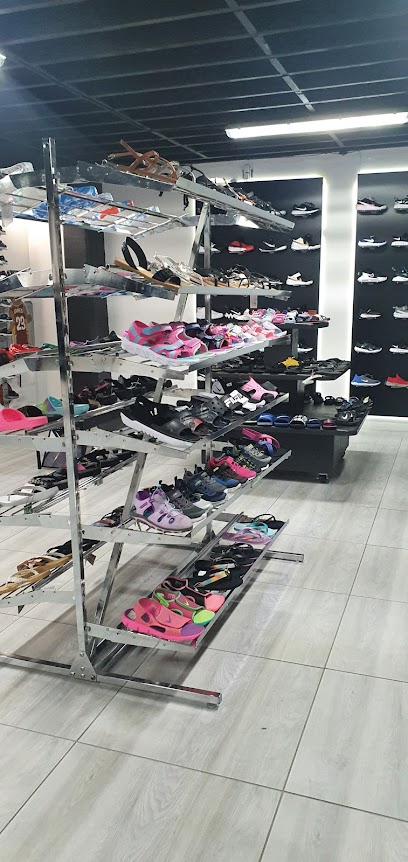
All Star Signs
Explore All Star Signs in Tafuna for top-notch printing services that reflect the spirit of American Samoa with quality and exceptional service.

GCC Store
Discover the charm of GCC Store, Ili'ili's premier supermarket offering local and international products to enhance your travel experience.
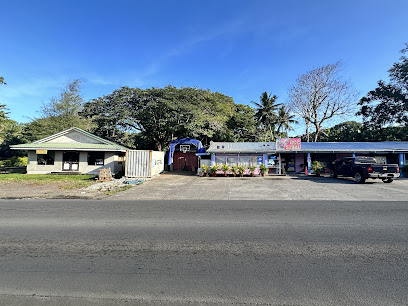
Turtle and Shark Shop & Cafe
Experience the charm of Turtle and Shark Shop & Cafe in Tafuna, offering delicious food, great coffee, and unique local gifts.
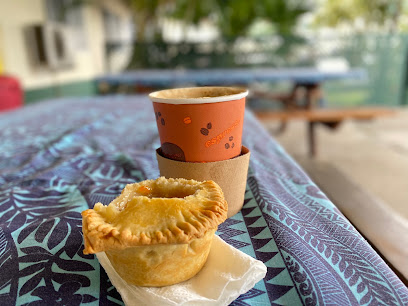
Tafuna Mini Mart, Inc.
Explore the flavors of American Samoa at Tafuna Mini Mart, where local culture meets convenience for an unforgettable shopping experience.
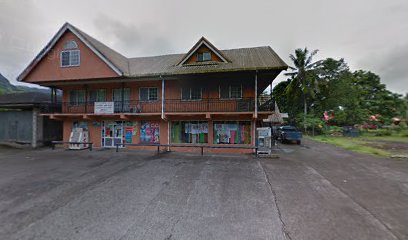
Essential bars & hidden hideouts
McDonald's
Experience the global fast-food phenomenon at McDonald's in Tafuna, where comfort food meets convenience in a lively setting.
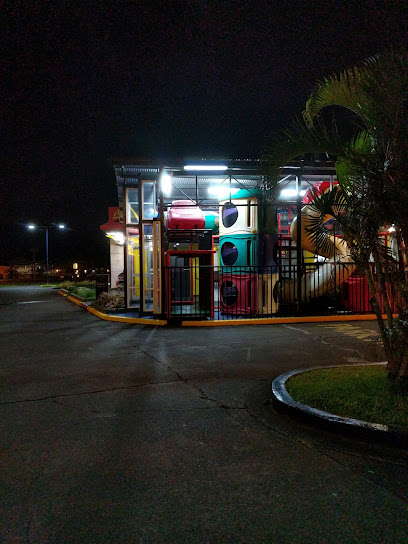
Tisa's Barefoot Bar
Experience the unique charm of Tisa's Barefoot Bar in Alega, where delicious local cuisine meets the beauty of Samoa's coastline.
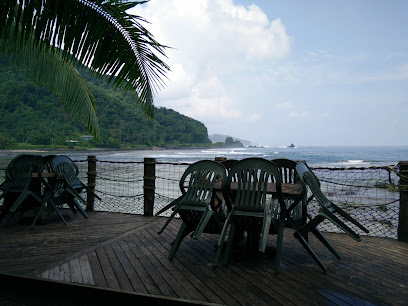
Cecilias Restaurant & Bar
Experience the best of Pago Pago's culinary scene at Cecilias Restaurant & Bar, where local flavors and warm hospitality meet.
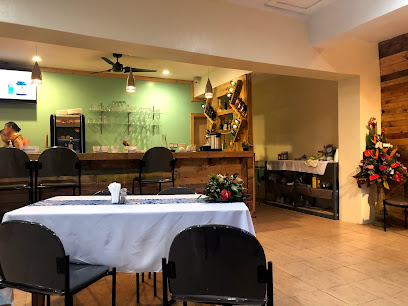
Tropical Chicken and Pizza
Experience the perfect blend of tropical flavors and classic pizza at Tropical Chicken and Pizza in Pago Pago, a must-visit for food lovers.
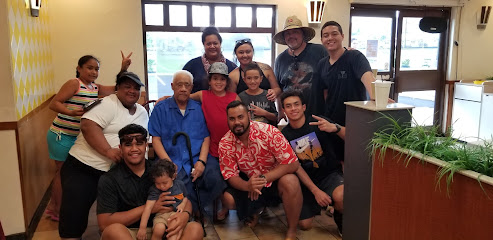
Oasis
Discover the authentic flavors of Korea at Oasis in Tafuna, where every dish tells a story of tradition and taste.
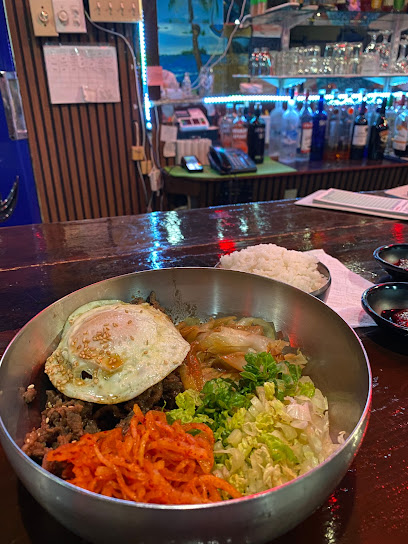
Flying Fox Gastropub
Explore the flavors of Samoa at Flying Fox Gastropub, where local ingredients meet gourmet creativity in a vibrant setting.
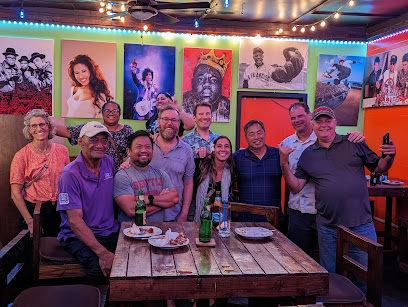
Paradise Bar & Grill
Discover the lively atmosphere of Paradise Bar & Grill, where delicious food, refreshing drinks, and vibrant entertainment await in Nu'uuli's tropical paradise.
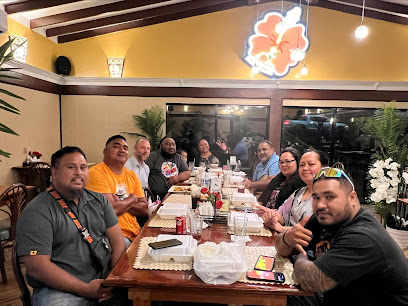
Dickies Diner
Indulge in delicious fast food at Dickies Diner in Tafuna, where classic flavors and a cozy atmosphere await every traveler.
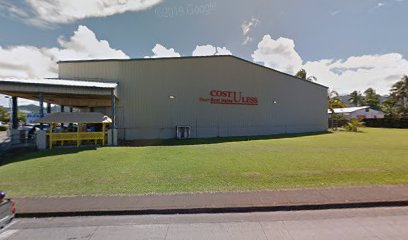
Manuia Restaurant
Experience authentic Korean cuisine at Manuia Restaurant in Tafuna, where delicious flavors and a warm atmosphere await.
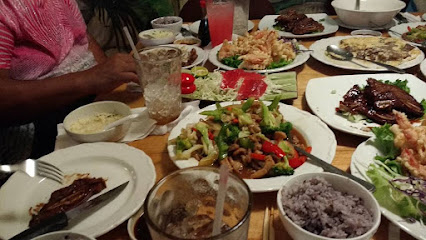
Nina’s Restaurant
Discover the flavors of Tafuna at Nina's Restaurant, where local ingredients meet global culinary traditions in a cozy setting.
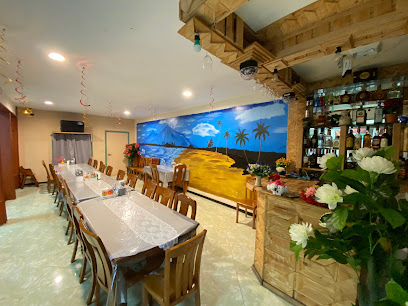
A&E Cafe
Discover the heart of Tafuna at A&E Cafe, where local flavors and warm hospitality come together in a delightful dining experience.
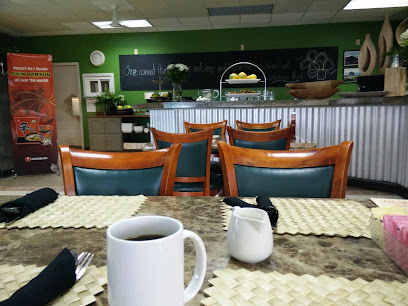
Shan-J Restaurant & Pizza Park
Discover the culinary delights of Shan-J Restaurant & Pizza Park in Malaeimi, where local flavors meet international cuisine in a charming atmosphere.
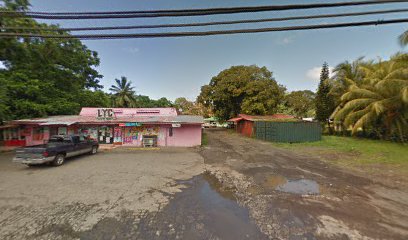
Famous Seafood Restaurant
Discover the flavors of the ocean at the Famous Seafood Restaurant in Tafuna, where fresh seafood meets local culinary traditions.
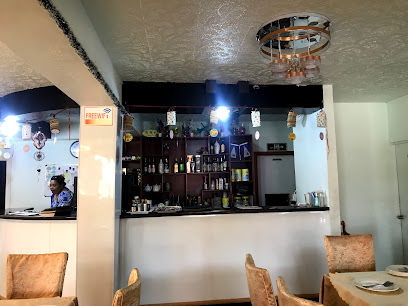
Local Delights Eatery, American Samoa
Experience the authentic taste of American Samoa at Local Delights Eatery, where traditional flavors meet modern dining in a cozy atmosphere.
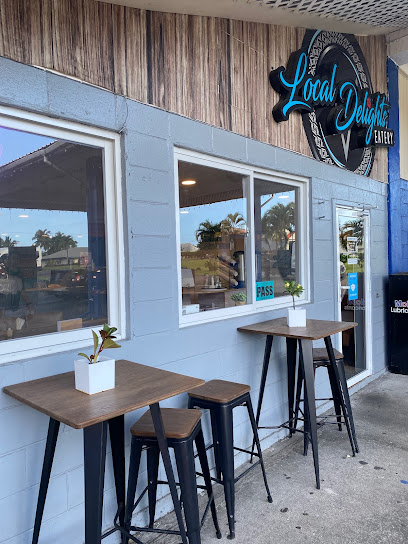
Local Phrases
-
- HelloTalofa
[Tah-loh-fah] - GoodbyeFa
[Fah] - YesIoe
[Ee-oh-eh] - NoLeai
[Leh-ai] - Please/You're welcomeFa'amalie
[Fah-ah-mah-lee-eh] - Thank youFa'afetai
[Fah-ah-feh-tah-ee] - Excuse me/SorryFa'amalie
[Fah-ah-mah-lee-eh] - How are you?O a mai oe?
[Oh-ah-my-oh-eh] - Fine. And you?Lelei. Pe a oe?
[Leh-leh-ee. Peh-ah-oh-eh] - Do you speak English?O lea le fa'ailoga a le gagana i le inglese?
[Oh-leh-ah-leh-fah-eye-low-gah-ah-leh-gah-gah-nah-ee-leh-ingleh-seh] - I don't understandE le mafai ona ou te le mafai ona malamalama
[Eh-leh-mah-fai-oh-nah-oh-teh-leh-mah-fai-oh-nah-mah-lah-mah-lah-mah]
- HelloTalofa
-
- I'd like to see the menu, pleaseO lo'u fia va'ai i le menu, fa'amalie
[Oh-loh-oo-fee-ah-vah-ah-ee-ee-leh-meh-noo-fah-ah-mah-lee-eh] - I don't eat meatE le auai i le 'ai pisupo
[Eh-leh-ah-oo-eye-ee-leh-ai-pee-soo-poh] - Cheers!Manuia!
[Mah-noo-ee-ah] - I would like to pay, pleaseO lo'u fia totogi, fa'amalie
[Oh-loh-oo-fee-ah-toh-toh-gee-fah-ah-mah-lee-eh]
- I'd like to see the menu, pleaseO lo'u fia va'ai i le menu, fa'amalie
-
- Help!Tulouna!
[Too-loo-nah] - Go away!Alu
[Ah-loo] - Call the Police!Vili mai le Ofisa Fa'aleoleo!
[Vee-lee-my-leh-oh-fee-sah-fah-ah-leh-oh-leh-oh-leh-oh] - Call a doctor!Vili mai se foma'i!
[Vee-lee-my-seh-foh-mah-ee] - I'm lostUa tasi le ala
[Oo-ah-tah-see-leh-ah-lah] - I'm illO'u e mafai ona ou te maliu
[Oh-oo-eh-mah-fai-oh-nah-oh-teh-mah-lee-oo]
- Help!Tulouna!
-
- I'd like to buy...O lo'u fia fa'amalu...
[Oh-loh-oo-fee-ah-fah-ah-mah-loo] - I'm just lookingO le ou va'ai i le mea
[Oh-leh-oh-oo-vah-ah-ee-ee-leh-meh-ah] - How much is it?E fia se isi?
[Eh-fee-ah-seh-ee-see] - That's too expensiveO lelei tele
[Oh-leh-leh-ee-teh-leh] - Can you lower the price?Fia fa'atatau le totogi?
[Fee-ah-fah-ah-tah-tah-oo-leh-toh-toh-gee]
- I'd like to buy...O lo'u fia fa'amalu...
-
- What time is it?O le a le taimi?
[Oh-leh-ah-leh-tie-mee] - It's one o'clockO se tasi
[Oh-seh-tah-see] - Half past (10)I le atu (10)
[Ee-leh-ah-too-ten] - MorningTaeao
[Tah-eh-ah-oh] - AfternoonAoauli
[Ah-oh-ah-oo-lee] - EveningAfiafi
[Ah-fee-ah-fee] - YesterdayAnanafi
[Ah-nah-nah-fee] - TodayAso nei
[Ah-soh-neh-ee] - TomorrowAso taeao
[Ah-soh-tah-eh-ah-oh] - 1Tasi
[Tah-see] - 2Lua
[Loo-ah] - 3Tolu
[Toh-loo] - 4Fa
[Fah] - 5Lima
[Lee-mah] - 6Ono
[Oh-noh] - 7Fitu
[Fee-too] - 8Valu
[Vah-loo] - 9Iva
[Ee-vah] - 10Sei
[Say]
- What time is it?O le a le taimi?
-
- Where's a/the...?O fea le...
[Oh-feh-ah-leh] - What's the address?O le a le tuatusi?
[Oh-leh-ah-leh-tuah-too-see] - Can you show me (on the map)?Fia fa'ailoa mai au (i le mapa)?
[Fee-ah-fah-eye-low-ah-my-ow-ee-leh-mah-pah] - When's the next (bus)?O le a le aunoa (ta'avale)?
[Oh-leh-ah-leh-ah-oo-noh-ah-tah-ah-vah-leh] - A ticket (to ....)O se pepa (i le ....)
[Oh-seh-peh-pah-ee-leh]
- Where's a/the...?O fea le...
History of Tafuna
-
Tafuna, located on the island of Tutuila in American Samoa, has a rich history that dates back to ancient Polynesian navigators. The region's fertile land and proximity to the ocean made it an ideal settlement site for early Samoans, who established thriving communities and developed a complex society.
-
The arrival of European explorers in the 18th century marked a significant turning point for Tafuna and the rest of American Samoa. Dutch navigator Jacob Roggeveen was one of the first Europeans to make contact in 1722, followed by French explorer Louis-Antoine de Bougainville in 1768. These encounters would eventually lead to increased European interest and influence in the region.
-
In the early 19th century, Christian missionaries from the London Missionary Society began arriving in Tafuna. They played a pivotal role in shaping the cultural and religious landscape, introducing Christianity and Western education to the local Samoan population. Their influence is still evident today in the numerous churches and schools throughout Tafuna.
-
American Samoa, including Tafuna, came under the administration of the United States in 1900 following the signing of the Treaty of Cession. This period brought significant changes, including the establishment of a naval station in Pago Pago, improved infrastructure, and the introduction of American governance structures. Tafuna benefited from these developments, becoming a key administrative and residential area.
-
During World War II, Tafuna and the broader American Samoa region played a strategic role in the Pacific theater. The construction of Tafuna Airfield (now Pago Pago International Airport) was a critical development, facilitating the movement of troops and supplies. The military presence brought economic growth and modern amenities to Tafuna, leaving a lasting impact on the local community.
-
Following World War II, Tafuna continued to modernize, transitioning from a predominantly agricultural society to a more diverse economy. The development of infrastructure, including roads, schools, and healthcare facilities, contributed to the region's growth. Today, Tafuna is a bustling hub with a mix of residential, commercial, and industrial areas, reflecting its dynamic history and cultural heritage.
-
In recent decades, there has been a strong movement towards cultural preservation and revival in Tafuna. Efforts to maintain traditional Samoan customs, language, and arts have gained momentum, supported by both local leaders and the community. Festivals, cultural centers, and educational programs play a crucial role in keeping the rich heritage of Tafuna alive for future generations.
Tafuna Essentials
-
Tafuna is located on the island of Tutuila in American Samoa. The primary gateway to Tafuna is Pago Pago International Airport (PPG), which is located in Tafuna itself. The airport has direct flights from Honolulu, Hawaii, making it accessible for international travelers. From the airport, you can take a taxi or rent a car to reach your accommodation in Tafuna.
-
Tafuna is a relatively small area, and many places can be reached on foot. For longer distances, taxis and rental cars are available. The local bus service, known as 'aiga buses', is a colorful and affordable way to get around, though schedules can be irregular. Renting a car is recommended if you plan to explore the island more extensively.
-
The official currency in American Samoa is the US Dollar (USD). Credit and debit cards are widely accepted in hotels, restaurants, and larger shops. However, it is advisable to carry some cash for small purchases, particularly in local markets or smaller establishments. ATMs are available, but it's wise to have some cash on hand.
-
Tafuna is generally a safe destination for tourists. However, it's important to take standard precautions. Avoid walking alone at night in unfamiliar areas and keep your belongings secure, especially in crowded places. There are no specific high-crime areas targeting tourists, but it's always best to stay vigilant and aware of your surroundings.
-
In case of emergency, dial 911 for immediate assistance. The local police and medical facilities are available in Tafuna. It is recommended to have travel insurance that covers medical emergencies. For minor health issues, there are pharmacies in Tafuna where you can purchase over-the-counter medications.
-
Fashion: Do dress modestly, especially when visiting religious or cultural sites. Avoid wearing revealing clothing. Religion: Do respect local customs and traditions. Always ask for permission before taking photos in churches or during cultural ceremonies. Public Transport: Do be respectful and give up your seat to elderly passengers. Don't eat or drink on public transport. Greetings: Do greet people with a smile and a friendly 'Talofa!' (hello). A handshake is also a common greeting. Eating & Drinking: Do try local delicacies and accept food offerings graciously. Don't refuse hospitality, as it is considered impolite.
-
To experience Tafuna like a local, visit the local markets such as the Fagatogo Market, where you can buy fresh produce and traditional Samoan goods. Engage with locals, as they are often friendly and willing to share stories about the area’s history and culture. Don’t miss the opportunity to attend a local 'fiafia' night, featuring traditional Samoan dance and music. For a unique experience, explore the nearby National Park of American Samoa, which offers stunning natural beauty and diverse wildlife.
Trending Landmark in Tafuna
-
Samoa Cultural Village
-
KS Mart
-
Laufou Shopping Center
-
National Park of American Samoa
-
Tisa's Barefoot Bar
-
National Park of American Samoa Visitor Center
-
Lalomanu Beach Fales
-
Milovales Burgers and Fish & Chips
-
Veterans Memorial Stadium
-
Pago Airport Inn
-
American Samoa Visitors Bureau (ASVB)
-
Fagatogo Square
-
Jean P Haydon Museum
-
Two Dollar Beach
-
OFFDAROCK TATTOOS AMERICAN SAMOA
Nearby Cities to Tafuna
-
Things To Do in Leone
-
Things To Do in Pago Pago
-
Things To Do in Fagatogo
-
Things To Do in Aua
-
Things To Do in Lalomanu
-
Things To Do in Apia
-
Things To Do in Mulifanua
-
Things To Do in Salelologa
-
Things To Do in Savai'i
-
Things To Do in Fagamalo
-
Things To Do in Manase
-
Things To Do in Asau
-
Things To Do in Falealupo
-
Things To Do in Ha'ano
-
Things To Do in Foa





